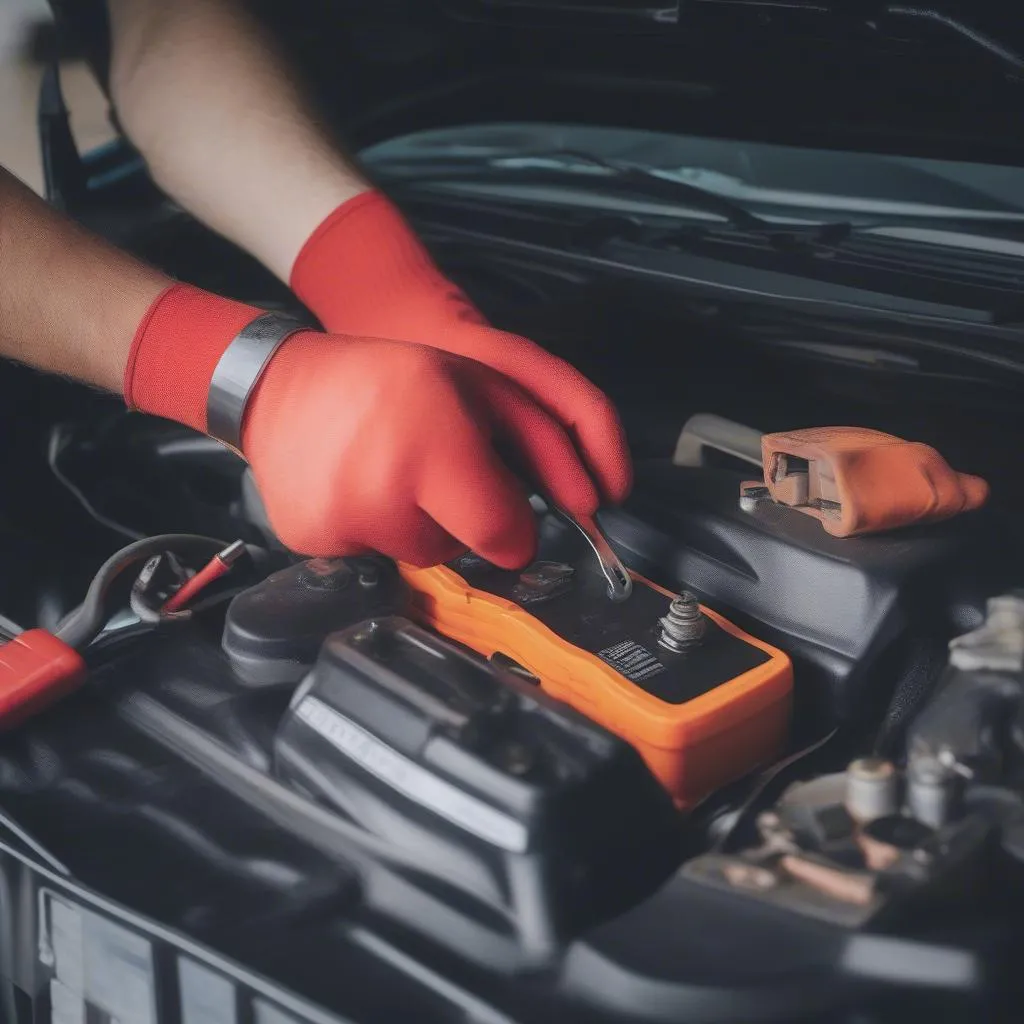A dead battery is every driver’s nightmare. Recognizing failing car battery symptoms early can save you from being stranded. This guide explores common signs of a dying car battery and offers solutions to keep you moving.
Recognizing the Signs of a Failing Car Battery
Several indicators can point to a failing car battery. Learning these car battery failing symptoms will empower you to take action before it’s too late. Dim headlights are a classic sign, especially noticeable at night or when using other electrical components. Slow engine cranking is another common symptom, indicating the battery is struggling to provide enough power to start the engine. Clicking sounds when turning the key mean the battery has enough juice to engage the starter solenoid, but not enough to turn the engine over.
Common Failing Car Battery Symptoms and Their Causes
A swollen battery case, often caused by excessive heat or overcharging, can also signify a dying battery. Car battery overheat is a serious issue and can lead to battery failure. The pungent smell of rotten eggs indicates a leaking battery, requiring immediate replacement. You might also notice electrical issues, like flickering interior lights or malfunctioning power windows, pointing towards a failing battery.
“A failing battery can mimic other car problems,” says automotive expert, Michael Stevens, ASE Certified Master Technician. “Accurate diagnosis is crucial to avoid unnecessary repairs.”
Testing and Troubleshooting Your Car Battery
A simple way to test your battery is with a multimeter. A reading of 12.6 volts or higher indicates a healthy battery. Anything significantly lower suggests a failing battery. You can also have your battery tested at most auto parts stores. They’ll use a specialized tester to check its charge and condition. If the volkswagen atlas key fob battery is working intermittently, it might not be the key fob’s fault but rather a symptom of a weakening car battery.
How to Extend the Life of Your Car Battery
Proper maintenance can significantly extend your battery’s lifespan. Keeping the terminals clean and free of corrosion is essential. Make sure your charging system is working correctly, as a faulty alternator can overcharge and damage the battery. Limiting short trips can help too, as short drives don’t give the alternator enough time to fully recharge the battery.
When to Replace Your Car Battery
If your battery is showing multiple failing signs, it’s likely time for a replacement. Don’t wait until you’re stranded. “Replacing your battery proactively is much less inconvenient than dealing with a breakdown,” advises Jennifer Rodriguez, Lead Electrical Systems Engineer. Recognizing signs your car needs a new alternator can also help prevent premature battery failure. Understanding acceptable car battery drain can also help you identify potential issues.
Conclusion
Failing car battery symptoms can range from subtle to obvious. By learning to recognize these signs, you can take proactive steps to avoid unexpected breakdowns. Regular maintenance and timely replacement are key to ensuring reliable starting and smooth operation of your vehicle’s electrical systems. Addressing failing car battery symptoms promptly will keep you on the road and avoid the frustration of a dead battery.
FAQ:
-
How long do car batteries typically last? Most car batteries last between three and five years.
-
Can extreme temperatures affect battery life? Yes, both extreme heat and cold can shorten a battery’s lifespan.
-
What should I do if my car won’t start? Check the battery terminals for corrosion and try jump-starting the car.
-
Can I jump-start my car with any other car? It’s essential to use a car with a compatible voltage system.
-
How do I know if my alternator is bad? Common signs include dimming headlights, flickering interior lights, and a dead battery.
-
What is a parasitic drain on a car battery? A parasitic drain is a constant, small electrical current draw that occurs even when the car is off.
-
How can I prevent my car battery from failing? Regular maintenance, such as cleaning the terminals and ensuring the charging system is working correctly, can help prevent premature battery failure.

